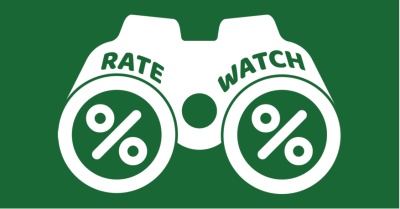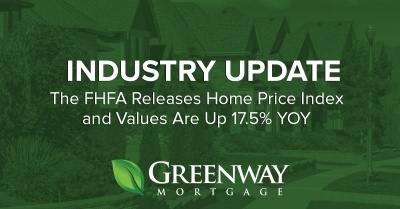
Most Medical Debts To Be Removed From Credit Reports

Changes are coming to medical debt reporting on consumer credit histories. In fact, credit scoring is changing to help consumers – specifically those with medical debt. That's not something you hear every day! Could a change in medical debt reporting help you? Read on for what borrowers should know about changes to how medical collections debt is reported.
Medical Debt is a Huge Element of Consumer Debt
When you think of consumer debt, overspending on credit cards may come to mind first. However, according to Consumer Financial Protection Bureau research, there’s $88 billion in medical debt on consumer credit records as of last June. COVID-19 sure hasn’t helped. Those with excellent credit records are sometimes dragged down by medical debt, too.
Having a debt in collections can eat away at your credit score by 100 points. Keep in mind, that these new changes will not erase medical debt. You're still responsible for paying it off.
What You Need To Know
The three primary credit repositories (Equifax, Experian and TransUnion) have agreed to changes that will wipe approximately 70% of medical collection debt from consumers' credit files. Here's what you need to know.
As of July 1, 2022:
-
Medical collection debt will be removed from credit reports after it has been paid. Typically, debt sent to a collection agency remains on a report up to seven years.
-
Negative reporting for unpaid accounts will appear on reports only after 12 months have passed. This gives consumers extra time to finalize questions with providers and insurers before the debt affects their credit rating.
-
Medical collection accounts below $500 will not be included on reports at all.
Bottom Line
If you or someone you care about has been denied credit or paid more due to a low credit score impacted by medical collection debt, it may be time to try again.
Please reach out with questions or to see if these changes may improve your credit scores. And if you know of anyone else who could benefit, please pass the information along or let us know. The Greenway Team is happy to help.
What Does The Fed's Rate Hike Mean For Mortgages?

They did it again!
In an effort to quell inflation, the Fed increased policy rates by 0.75% at their most recent meeting. This is the largest increase since 1994 and more than initially expected. Mortgage interest rates had already moved upward in anticipation.
What's next?
It is expected the Fed will continue moving rates on an upward path at each successive meeting of the Open Market Committee, so long as conditions warrant. Most analysts anticipate the increases will continue until the Fed has met its directive of containing inflationary forces in the economy.
Background on the Fed:
- The Federal Reserve Board (the Fed) controls the federal funds rate and discount rate, which are charges for overnight loans from bank to bank or from the Fed to member banks.
- The rate was lowered to near zero in March 2020 in response to the pandemic. These historic measures are now being reversed.
- This is the third increase this year.
What this may mean for you:
If you are planning a home purchase or any type of refinancing, including accessing cash from your home’s equity, it may pay to act before further increases. You may want to explore alternatives, such as a lower rate, hybrid adjustable mortgage (ARM) or home equity line of credit (HELOC).
The Greenway Team monitors interest rates and the markets every day.
Please reach out if we can answer questions or be of service to you or your friends and family. We are happy to help!
Rate Watch | What This Means For Homeowners

If you haven't already heard the news, interest rates are on the rise. The Fed promised, and they delivered in their meeting this week.
The Federal Reserve Meeting
At their most recent meeting, the Fed moved policy rates up by 0.5%, just as they've been saying. Because it was expected, interest rates had moved in advance, including those for home mortgage loans.
What's Next With Rates?
It's expected the Fed will continue moving rates on an upward path at each successive meeting of the Open Market Committee, so long as conditions warrant. Most analysts anticipate the increases will continue until the Fed has met its directive of containing inflationary forces in the economy.
Background On The Fed
-
The Federal Reserve Board (the Fed) controls the federal funds rate and discount rate, which are charges for overnight loans from bank to bank or from the Fed to member banks.
-
The rate was lowered to near zero in March 2020 in response to the pandemic. These historic measures are now being reversed.
-
This is the second increase this year.
What Does This Mean for Homeowners and Homebuyers?
If you are planning a home purchase or any type of refinancing, including accessing cash from your home’s equity, it may pay to act before further increases. You may want to explore alternatives, such as a lower rate, hybrid adjustable mortgage (ARM) or home equity line of credit (HELOC).
The Greenway Team monitors interest rates and the markets every day. Please feel free to reach out to one of our expert Loan Officers if you have any questions! Out team is happy to help.
FHFA Releases Home Price Index and Values are up 17.5% YOY

The Federal Housing Finance Agency released its House Price Index for Q4 of 2021 and home prices were up 17.5% year over year. Your area's details can be found in my Real Estate Appreciation Data Report.
What could this mean for you as a homeowner?
-
You may be able to drop private mortgage insurance and lower your monthly payment
-
Take cash out for home improvements, debt consolidation, tuition payments, or any other purpose
When values are high, a refinance could be worth exploring.
Are you thinking of buying?
High home prices can impact affordability, as can rising interest rates. Fortunately, rates are still below historical norms and prices continue to rise due to low inventory and high demand in most areas.
Reach out to discuss your scenario before rates get any higher!
Mortgage Guideline Update | Documenting Self-employed borrowers

Finally some good news in the mortgage world! 🗞🗞→ Documenting income for self-employed buyers is returning to normal.
What does this mean?
In typical scenarios, borrowers who rely on self-employment income may now submit their most recent federal income tax returns as proof of income, as long as the returns are no earlier than 2020.
How does this help?
Covid-era rules for certain government-backed loans required self-employed borrowers to submit recent P&L statements, asset account statements, and more. It’s much easier for most to supply tax returns instead.
If you know of anyone who delayed a mortgage because of the extra documentation requirements, there’s still time to act while rates remain near historic lows. Please reach out with any questions or to make a referral.




.jpg)
